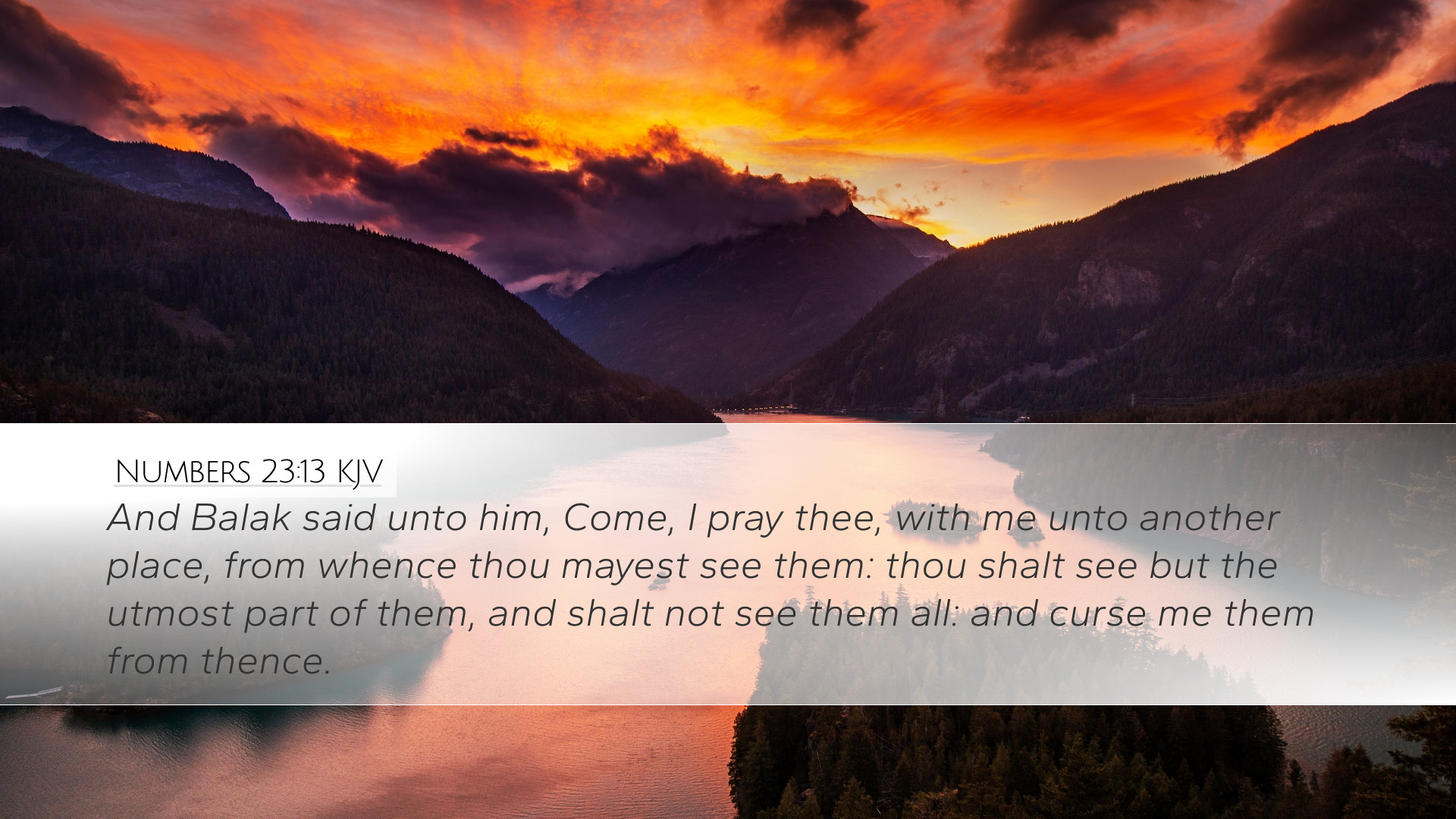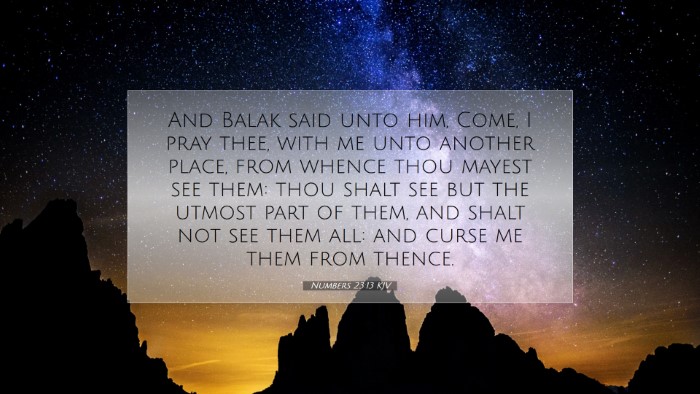Bible Commentary on Numbers 23:13
Verse: "And Balak said unto him, Come, I pray thee, with me unto another place, from whence thou mayest see them: thou shalt see but the utmost part of them, and shalt not see them all: and curse me them from thence."
Introduction
This verse is pivotal within the narrative of Balak and Balaam, illustrating the tension between divine purpose and human manipulation. The request from Balak to Balaam epitomizes the struggle to combat the people of Israel from a distance, emphasizing the limitations of Balaam's prophetic gifts when separated from God's directive.
Contextual Analysis
The backdrop of Numbers 23 depicts Balak, the Moabite king, deeply intimidated by the presence and victories of the Israelites. His fear propels him to seek out Balaam, a soothsayer known for his ability to bless or curse. In the previous chapters, we witness Balaam’s initial resistance to curse Israel as commanded by Balak, thereby setting the stage for the subsequent negotiations and attempts to find a vantage point from which a curse might be more favorable.
Balak's Strategy
Albert Barnes notes that Balak's insistence on viewing Israel from different locations indicates a strategic shift in his approach, attempting to reduce the number of Israelites seen, thereby diminishing their perceived strength. This reflects a common theme in the scriptures: the tendency of leaders to rely on physical sight and assessment rather than on divine revelation.
Balaam's Position
According to Matthew Henry, Balaam’s role is complex; he stands at the intersection of divine will and human greed. Balak's request shows that while Balaam possesses the ability to bless or curse, his capabilities hinge on divine approval. This highlights the caution that must be taken in prophetic ministries, where fidelity to God's word must be paramount.
Theological Implications
This verse allows for rich theological reflection, particularly on the themes of sight and perception. Balak's desire to reposition Balaam underscores humanity's attempt to manipulate the divine for personal gain. Adam Clarke emphasizes that Balaam must maintain fidelity to God's direction, as any attempt to subvert this will ultimately lead to failure.
Human Understanding versus Divine Insight
The narrative illustrates the contrast between human understanding, which often relies on visual assessment, and divine insight that transcends earthly limitations. As scholars reflect on this passage, it invites a contemplation of how often leaders fall prey to their own strategies, believing they can outmaneuver God's plans. Balak's failure serves as a cautionary tale against human arrogance and the futility of attempting to thwart God’s purpose through manipulation.
Applications for Today
For pastors, students, and scholars alike, Numbers 23:13 invites reflection on several key applications:
- Faithfulness in Vocational Callings: The professional integrity of Balaam’s prophetic role serves as a reminder of the importance of being true to one's calling, ensuring that one’s actions align with God’s will.
- The Temptation of Compromise: Balak's attempts to coax Balaam into a more favorable stance reflect the constant pressure faced by leaders to compromise their beliefs for expediency.
- Seeing Beyond the Surface: The limitation of human sight reminds us that God’s plans often unfold in ways that challenge our expectations and perceptions.
Conclusion
Numbers 23:13 serves as a rich tapestry woven with themes of divine sovereignty, prophetic responsibility, and human ambition. The interplay between Balak and Balaam illustrates the profound truth that God's purposes cannot be manipulated or thwarted. Rather, they challenge us to seek a deeper understanding and commitment to God's will, reinforcing the necessity of faithfulness in the face of worldly pressures.


